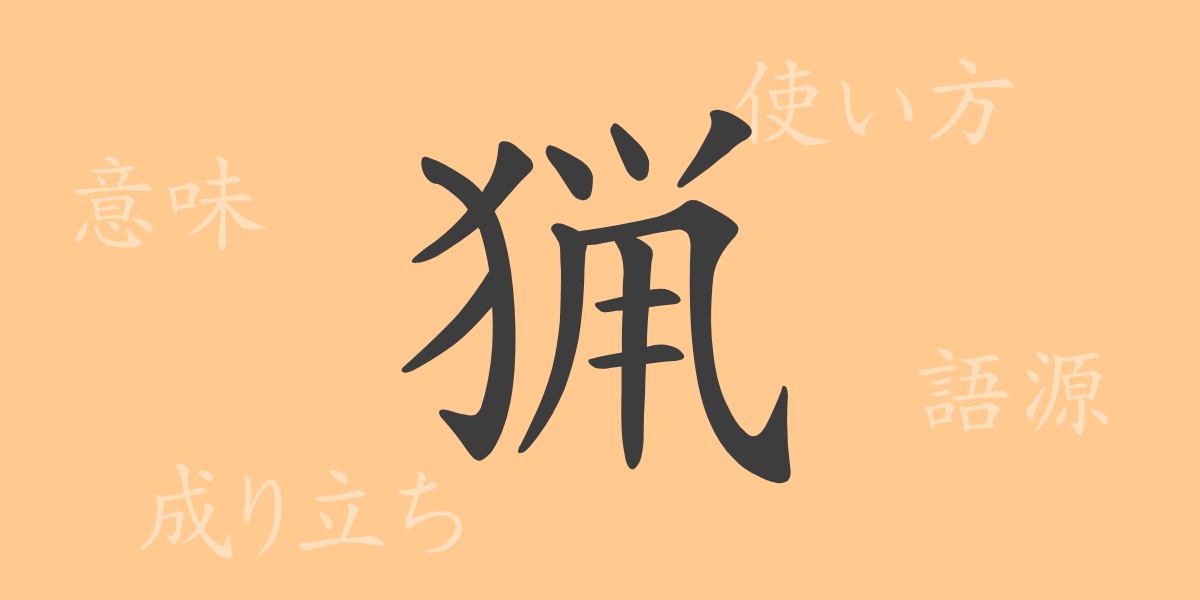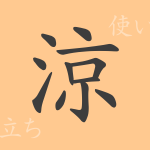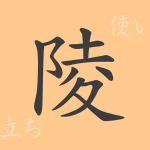Language is the thread that weaves together culture and history, with each word carrying deep meaning. The commonly used Japanese kanji “猟” (りょう, ryō) is no exception. In this article, we will delve into everything about “猟” (りょう, ryō), from its etymology and modern usage to idiomatic expressions and proverbs. Through the rich world that a single kanji character holds, we hope to deepen your understanding.
Etymology of 猟 (りょう, ryō)
The kanji “猟” (りょう, ryō) originated in ancient China as a word meaning “hunting.” It originally signified the act of hunting and depicted a person with hunting tools. “猟” (りょう, ryō) embodies the pursuit of prey and is a character closely tied to human life.
Meaning and Usage of 猟 (りょう, ryō)
“猟” (りょう, ryō) is generally used to refer to hunting. However, its usage is not limited to this. As seen in the word “猟奇” (りょうき, ryōki), it is also used to describe the pursuit of abnormal behavior or rare things. Additionally, in the word “猟師” (りょうし, ryōshi), it refers to a person whose occupation is hunting.
Reading, Stroke Count, and Radical of 猟 (りょう, ryō)
The kanji “猟” (りょう, ryō) contains a wealth of information in its structure and sound.
- Reading: It is read as “リョウ” (りょう, ryō) in on’yomi (音読み) and “かり” (kari) in kun’yomi (訓読み).
- Stroke Count: “猟” (りょう, ryō) has a total of 11 strokes.
- Radical: The radical is “犬” (けん, ken), categorizing it among characters related to animals.
Idioms, Phrases, and Proverbs Using 猟 (りょう, ryō) and Their Meanings
There is a rich variety of idioms, phrases, and proverbs in Japanese that include “猟” (りょう, ryō). For example, “猟師” (りょうし, ryōshi), “猟犬” (りょうけん, ryōken), and “猟銃” (りょうじゅう, ryōjū) are directly related to hunting. On the other hand, the expression “猟奇的” (りょうきてき, ryōkiteki) describes something unusual, bizarre, or abnormal. These words are deeply rooted in Japanese life, culture, and values.
Summary of 猟 (りょう, ryō)
The kanji “猟” (りょう, ryō) not only signifies hunting but also plays a part in the diverse expressions and culture of the Japanese language. By gaining a deeper knowledge of “猟” (りょう, ryō) through this article, we hope to enrich your understanding of Japanese. Let’s continue to cherish the unique worldview that “猟” (りょう, ryō) holds.

























